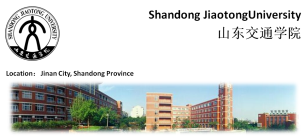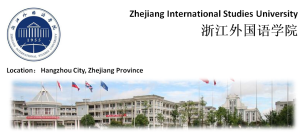How to Study in China Cheap?
China

You've seen pictures, read news articles, and watched travel clips. You want to go to China, and will do just about anything to get there. You want to invest in your future, and learn the Mandarin language. The only problem, your funds just aren't there.
It's normal to feel the weight of the financial commitment for a study abroad experience. The thought of funding visas, passports, flights, medical expenses, and other upfront costs, the kind that will help you get to China in the first place, may already make you shudder, and that's only before budgeting for living your life there.
You will need to plan ahead and maybe make a few lifestyle changes.
What we mean by "Cheap"
Students should recognize that some saving may be necessary to foot the bill for your entire study abroad experience.
Ideally, you'll work your magic and receive a scholarship while studying in China. Since there is uncertainty between the time you start to apply and the time you know whether or not you received the scholarship, you should actively begin saving and budgeting for your year abroad.
Just in case the scholarship doesn't truly work out, here are some tips to make it past the financial hurdle.
Figure out your total study costs
In order to ensure you budget properly for your upcoming study abroad program in China, start by researching the program that provides the best value. Factor in extra to cover the upfront costs.

Here's a closer look at what we mean when we say foregoing a program provider will alleviate the overall costs of your China study abroad experience:
"...The spring program fee for a semester in Shanghai, China is $13,850, which also includes housing and other support. Tuition for a semester is roughly $3,900, which does not include housing and only limited support. However, even when you add in additional living expenses it is still very possible to come out on top..."
Consider all of that factors that will make your study abroad experience more or less expensive. Often, smaller cities or towns are cheaper to live in than the big cities like Beijing and Shanghai. Not only is rent lower, but public transportation, food, clothes, and other items can be cheaper. Cities such as Xi'an, Harbin, Zhejiang, Liaoning, Shengyang, Wuhan - there is no shortage of options in China for a less expensive study abroad experience.
List of Best-Value Programs--Low Cost but Best Education:










Tips to Live on a Budget

The good news is, the general cost of living in China is considerably lower than what you would find in the US, Canada, Australia, and western Europe. For most everyday items, your native currency can go a lot further in in China than back home. Between apartment rental and transportation, to the low cost of utilities and food items, your ability to finance a life in China will mostly be easier than another year spent in your home country. Though living costs are rising in China, it still remains affordable for most international students.
You won't be spending all of your time studying, after all! Be sure to budget pocket money, so you can take advantage of unique (and photogenic!) opportunities in China, such as seeing the Great Wall or feasting on Peking Duck. Have you always wanted to eat from the top of the Jinmao Tower? Plan ahead, and remember that these types of activities may pop up unexpectedly while you are abroad. Don't pinch your RMB's so tight that you can't have any fun!
Eat like a local

When you are studying in China, avoid getting caught up in American brand names. Say your "good bye's" to peanut butter, cereal, and cold milk (unless you're okay with splurging up to 4x more than the price back home.) Remember: your food and dining choices can be just as much of a cultural experience as visiting the Forbidden City or the Chiang Kai Shek museum.
It's by far cheaper to eat what the locals eat then caving in for your back-home favorites. The cost of food in China is very low, regardless if you choose to eat out at a restaurant or cook back home (note that Chinese apartments are no equipped with ovens). The price of essential food is controlled in China, keeping this expense manageable.
Wash it all down with locally sourced green tea for an even more Chinese diet!